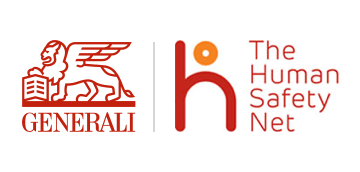Social Media Success Metrics: KPIs That Actually Matter
In today’s digital landscape, you need to understand which social media KPIs actually influence your brand's success. While metrics like likes and shares may seem compelling, they're not always the best indicators of your marketing effectiveness. Instead, focusing on actionable KPIs can provide clearer insights into audience engagement and revenue generation. So, which metrics should you really prioritize to optimize your strategy? Let’s explore the key indicators that matter most.
What Are Social Media KPIs?
Understanding social media KPIs is essential for brands working towards specific marketing objectives. Key performance indicators (KPIs) assess the effectiveness of efforts related to engagement rates, conversion rates, and return on ad spend. These metrics differ from vanity metrics in that they provide insights that are directly connected to revenue generation and overall marketing effectiveness.
Tracking social media metrics allows brands to evaluate the performance of their content and the way audiences interact with it.
Consistent monitoring of KPIs can help align marketing strategies with broader business goals, offering the opportunity to refine tactics and improve customer engagement. This, in turn, can lead to enhanced return on investment (ROI) and support sustained business growth.
The Importance of Measuring Social Media Success
Measuring social media success is essential for brands seeking to engage meaningfully with their audience and fulfill their marketing objectives. The analysis of key performance indicators (KPIs), such as engagement rates and conversion metrics, allows businesses to associate their social media efforts with tangible outcomes, thereby illustrating the return on investment.
Furthermore, evaluating performance metrics like customer satisfaction scores and brand health indicators can inform strategic adjustments and contribute to enhanced customer loyalty.
It is crucial to prioritize actionable KPIs that contribute to growth, as opposed to relying on vanity metrics that don't provide substantial insights. A focused approach ensures that social media initiatives are in line with broader business goals.
Key Social Media KPIs to Focus On
Monitoring key social media KPIs is essential for brands seeking to optimize their online presence.
The Engagement Rate serves as a measure of how content resonates with the audience, gauging interactions such as comments, likes, and shares relative to total followers. The Conversion Rate provides insight into the effectiveness of social media campaigns in prompting specific desired actions, such as purchases or sign-ups.
Tracking Reach is vital for assessing brand visibility across platforms, as it reflects the number of unique users who've encountered your content. The Follower Growth Rate indicates the rate at which a brand is expanding its audience, which can reflect the impact of various social media strategies.
Lastly, the Net Promoter Score (NPS) is a valuable metric for evaluating customer loyalty and satisfaction by assessing the likelihood of customers recommending the brand to others.
How to Effectively Track Your Social Media KPIs
To effectively leverage your social media presence, it's crucial to track your KPIs systematically. Regular monitoring of metrics such as engagement rates and conversion rates can help evaluate the efficacy of your social media strategy.
Utilizing analytics tools, including Google Analytics 4, can facilitate automated tracking and streamline the collection of relevant data.
When establishing social media KPIs, it's advisable to follow the SMART criteria—Specific, Measurable, Achievable, Relevant, and Time-bound—to ensure the insights gained are meaningful.
Attention should be directed toward actionable KPIs, such as customer lifetime value and return on ad spend, rather than focusing solely on vanity metrics which may not provide substantial insights into performance.
Creating comprehensive KPI reports is essential for identifying trends and benchmarks over time.
These reports can inform marketing decisions and drive improvements in overall performance by highlighting both successes and areas needing attention.
Tools for Monitoring and Analyzing Social Media Performance
When monitoring social media performance, selecting appropriate tools can significantly impact your understanding of audience behavior and the effectiveness of your strategy.
Sprout Social and Google Analytics are examples of comprehensive tools that enable the automation of key performance indicators (KPIs) and facilitate the generation of social media reports. Similarly, platforms like DashThis offer customizable dashboards to aid in the tracking of engagement metrics.
Additionally, social listening tools are valuable for assessing customer interactions and sentiment, providing insights into audience perceptions and preferences. These monitoring tools equip users with real-time data, which can inform data-driven decision-making processes.
By utilizing this information, organizations can adjust their content strategies in response to actual audience feedback.
Best Practices for Reporting Social Media KPIs
Establishing best practices for reporting social media key performance indicators (KPIs) is important for aligning metrics with business objectives and ensuring that stakeholders understand performance outcomes.
It's crucial to define KPIs in a clear manner, prioritizing actionable metrics such as customer lifetime value (CLTV) and return on ad spend (ROAS).
The use of automated tools for data aggregation and reporting can facilitate efficient tracking of performance data.
Regular reviews of these metrics are necessary to adapt to trends and changes in performance over time.
Additionally, creating detailed reports that encompass insights and suggest actionable next steps can enhance the effectiveness of social media strategies and contribute to ongoing improvements.
Conclusion
In today's fast-paced digital landscape, understanding social media KPIs is essential for your brand's success. By focusing on actionable metrics like engagement rate and conversion rate, you can measure your impact and uncover opportunities for growth. Regularly tracking and analyzing these KPIs ensures that your strategies align with your business goals. With the right tools and best practices in place, you’ll not only boost your social media performance but also foster stronger connections with your audience.

